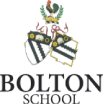
Year 12 and 13 students at Bolton School Boys’ Division enjoyed an inspiring World of Work virtual presentation from former pupil Jonny Ashton, now a freelance documentary director.
Jonny, who left Bolton School in 2005, briefly recapped his career, telling how he had recently directed two of the new Louis Theroux Interviews programmes, a film for Channel 4 about alcohol addiction and a documentary about Will Young, who lost his twin Rupert to alcoholism – which led to Jonny speaking to a a cross-party group of MPs about issues raised in the film. He also spoke about earlier roles directing 24 Hours in Police Custody, Murder 24/7, Ambulance, Hospital, Hunted and The Mighty Redcar and how, as a filmmaker, you are often given privileged access. Jonny believed that having a curiosity about people’s lives is essential in documentary work and that, in his experience, people are eager to tell their story. He said he aims to create programmes that matter, inspire and inform and, if possible, make people laugh too.
Jonny explained how a documentary director oversees everything that appears on the screen. He described how the camera is an important tool in your arsenal and how it offers a chance to see the world through a different lens. He noted how the setting in shows on Netflix, for instance, always look more beautiful than real life. Jonny revealed how the job of a director is to oversee everything that appears on the screen and that this usually involves working with an editor on how to structure the film in the most engaging and dramatic way possible. Each story, he said, needs a beginning, middle and an end but not necessarily in that order – it is all about choices! Considering different techniques, he recounted how he might write scenes on post-it notes and then move them around in an attempt to see things differently and to work out how best to build a film. It can be important, he said, to get some outside perspective and, if needs be, to re-draft. He confided that when he makes films, he often does not know what the end is going to be and, even if he does, it can change anyway. The documentary-making process is, in Jonny’s view, all about listening to the story and evolving it and reacting to what is happening. Ideas often come to him when he is out walking or cycling, which, he said, provides time for thoughts to percolate. Quite often, he said, it is all about what we want the audience to feel - even in the darkest stories, can you find some light?
Reflecting on his own school days, Jonny informed the students that when he was their age, he did not know that he wanted to make documentaries. He recalled how he had wanted to be an actor and how he had joined the national youth theatre and taken part in school plays. At university, he studied Psychology – the science of studying people and what they do. He told how, upon graduation, he went on to drama school and revealed how the short films that he started making were initially a vehicle to allow him to act. Gradually, however, he said he fell in love with being on the other side of the camera and the craft of filming. Initially he had thought he might produce comedy and he had started out as a runner. He spoke about always wanting to be the best that you can be, about working hard, learning as you go and listening to your instincts about what is going to make you happy.









.jpg&command_2=resize&height_2=85)
.jpg&command_2=resize&height_2=85)












